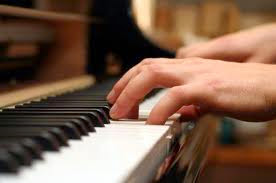I am a very strong advocate of instrumental music lessons
for children—especially gifted children.
When I was a child, it seemed that almost every young person
took piano lessons and, once they entered junior high (today’s middle school),
they often took an additional band or orchestral instrument. It was all
considered part of a rounded education. This is no longer the norm.
I am making a personal plea to parents of bright kids to
enroll their youngsters in music lessons. There is so much to be gained from
this instruction. In his article, The Prodigious Power of Piano Playing, Brian Chung lists some great reasons to take piano
lessons. These reasons also apply to lessons on other instruments. Taking
lessons and practicing will help young people learn to
- work hard
- focus
- be responsible
- pay attention to details
- be self-reliant
- be creative
All of these skills can transfer to other areas of the
student’s life.
I have a few extra words of advice.
- Don’t expect your kids to enjoy learning music that you do not play in your own home. It may be too foreign to their ears. Play—and hopefully enjoy—a wide variety of types of music at home, including classical, jazz, folk, contemporary, and music from other cultures.
- Take your children to concerts of many types, letting them hear a wide variety of music genres.
- Present the opportunity to take music lessons as an honor, not a duty.
- Be willing to sit with your child during practice, especially in the beginning.
- Research and interview a variety of teachers before choosing one. It is very important that your child and the instructor be able to “connect” on many levels.
In Hearing the Music, Honing the Mind, the editors of Scientific American discuss studies showing that
instrument training from an early age enables the brain to better focus,
concentrate, and learn subtleties in sound, thereby enabling one to more easily
learn a foreign language.
Serious practice on an instrument also helps students acquire
self-discipline. It is enormously satisfying to work very hard at something and
then reap its rewards. If a student participates in playing instruments with a
group, there is a great deal of teamwork involved. Above and beyond all of
this, learning to play an instrument promotes a lifelong joy in music.

My children, 11-year-old twins, are in their third year of lessons. My son is somewhat of a natural, while my daughter doesn't advance as quickly. Yet, her interest has expanded in music and now she is also taking guitar lessons.
ReplyDeleteI've seen a big change in her academics overall. Even though she is far from a prodigy, my daughter practices and can see improvement each month. I think this has encouraged her to feel less frustrated while studying other subjects.
I attempt to expose them to a variety of music. I think it's important that parents continue to expose themselves to new music as well. Every generation has their own perception of good music, and it's easy to discount contemporary pop as poor quality.
I listen to the radio with my kids, and follow popular music. Generally, most of it is garbage. This gives me more credibility when I have first-hand knowledge of why it's garbage. Additionally, I have experienced some high-quality songwriting and musical talent that I would likely have missed had I stayed tuned to the music of my generation.